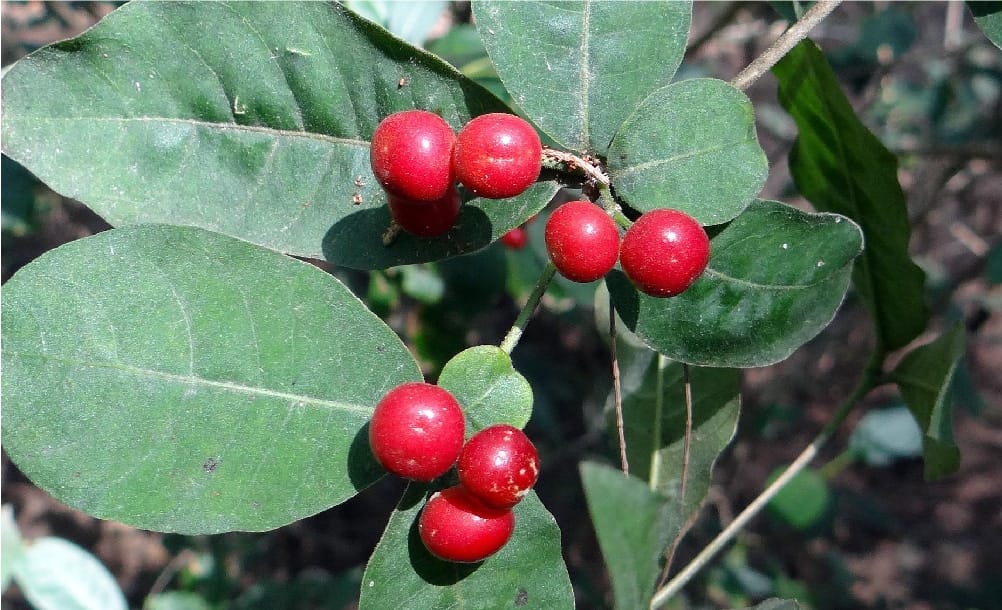Rauwolfia serpentina (Sarpagandha) is an important herb used in Ayurvedic and folk medicine since ages, especially for the treatment of high blood pressure and psychiatric conditions. It is also known as Indian Snakeroot and Devil-pepper. The roots, and the leaves of this plant are all used as medicines.
What is Sarpagandha?
Sarpagandha plant is a small, green, erect, perennial shrub which grows at a height of around 15-45cm. This sarpagandha plant grows well in hot, humid weathers within a temperature range of about 10-380C. It is usually seen in tropical and subtropical areas with good monsoon rains.
Sarpagandha is found in India, China, Pakistan, Bangladesh, Indonesia, Sri Lanka, Thailand and Myanmar. In India, it is found in the states of Himachal Pradesh, Jammu and Kashmir, Uttar Pradesh, Bihar, West Bengal, Andhra Pradesh, Tamil Nadu, Kerala, Lakshadweep and Andaman and Nicobar Islands.
Medicinal Properties of Sarpagandha
The sarpagandha plant has been reported to have the following medicinal properties:
- Vasodilator: This herb is known to reduce the tone of the blood vessels and therefore, reduces the blood pressure.
- Central Nervous system depressant: Sarpagandha plant has a depressant action on brain centres and therefore, it is useful in the treatment of conditions in which there is excess brain activity, such as anxiety and agitation.
- Stimulates gut motility: Sarpagandha plant is known to have a stimulatory action on the intestinal musculature. This property may be helpful in the treatment of gut motility disorders.
Medicinal uses of Sarpagandha
Serpentina benefits have been reported to include the treatment of the following conditions:
1. Lowers High blood pressure
Sarpagandha is known to lower blood pressure by many mechanisms. Firstly, it causes dilatation of the blood vessels. Secondly, reserpine, an alkaloid present in Sarpagandha, is responsible for inhibiting brain centres which are responsible for controlling blood pressure.
It also affects the function of the autonomic nervous system by inhibiting the sympathetic nervous system activity and stimulating parasympathetic activity.
This results in decreased heart rate, strength of heart muscle contraction and tone of the blood vessels.Sarpagandha is especially useful in those cases where the blood pressure has aggravated due to excess sympathetic nervous system activity such as in stress.
2. Psychotic disorders
Clinical studies have proven that Sarpagandha, if used for around a period of 20 days can be helpful to reduce anxiety. The root of Sarpagandha is used to reduce agitation, insomnia and induce sedation. It has been used in the past for a large range of psychiatric disorders encompassing schizophrenia, epilepsy and insanity.
3. Intestinal disorder
Sarpagandha has also been used to treat various intestinal disorders such as diarrhoea and dysentery.
4. Prostate cancer
The plant extracts of R. serpentine have shown anticancer activity against prostate cancer in various experimental studies
In folk medicine, plant extracts of Sarpagandha has been used to treat colic, cholera and fever. The roots of this plant have been used for treating poisonous insect stings and snake bites. Its roots have also been used to stimulate uterine contractions and promote expulsion of the fetus during delivery. The juice extracted from the leaves is used to treat corneal opacity. Extracts of R. Serpentina is also used in treating conditions such as fever, eye problems, asthma, headache, pain related to liver problems etc.
Side effects:
Consumption of sarpgandha can cause appetite and weight changes, nasal congestion, drowsiness, loose stools, muscle aches, headaches, chills, nausea and vomiting in some people. Long term use of R. serpentina is known to have caused depression.
Safety:
The dose of sarpagandha depends on the condition and the age, health of the person using it. The exact safe dose of sarpagandha has not yet been determined.
The people having the following conditions must be cautious while taking R. serpentina:
- Taking electroconvulsive therapy: People taking shock therapy for mental illnesses should stop using R. serpentina atleast 1 week before the planned therapy.
- Gallstones: Having rauwolfia serpentina might worsen gall bladder disease.
- Low blood pressure: R. serpentina reduces blood pressure levels. If you already have low blood pressure, you must avoid taking R. serpentina.
- Depression: You should avoid taking R. serpentina if you have depression or suicidal tendencies.
Sarpagandha also interacts with certain medications. You should avoid taking the following if you take the following medications.
- Alcohol: Alcohol depresses central nervous system (CNS)activity. Having sarpagandha may potentiate the effects of alcohol and cause serious deterioration of CNS activity.
- Digoxin: Digoxin is given to increase the heart rate.R.serpentina decreases heart rate and may therefore, reduce the effectiveness of digoxin.
- Levodopa: R. serpentina have been found to reduce the effectiveness of Levodopa, which is a drug commonly, prescribed to treat Parkinson’s disease.
- Antipsychotics and Sedatives: Antipsychotics and sedatives depress central nervous system activity. sarpagandha may potentiate the effects of these drugs and cause serious deterioration of CNS activity.
- Antihypertensives: Sarpagandha may potentiate the effects of antihypertensive drugs and cause serious drop in blood pressure.
- CNS stimulant drugs:R. Sarpagandha may reduce the effects of CNS stimulant drugs such as epinephrine and phenteramine and pseudoephedrine.
- Diuretics: Diuretics reduce potassium levels in the body. Low potassium levels cause decrease functioning of the heart. Having rauwolfia serpentina may further deteriorate heart function.
Like any other drug, sarpagandha should also be taken in doses as prescribed by the physician. Self- administration (without prescription) of herbal medications is not safe and may lead to adverse effects.

















